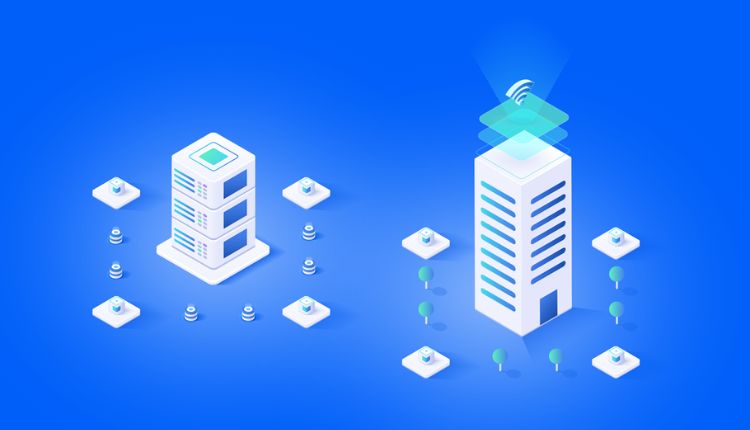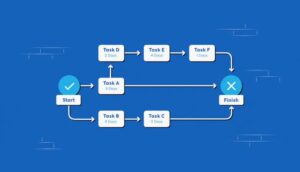The Ultimate Guide to Buying Residential Proxies: Everything You Need to Know

What are Residential Proxies and Why are They Important?
Residential proxies, also known as residential IP proxies, are proxy servers that route internet traffic through real residential IP addresses. Unlike datacenter proxies that use IP addresses from data centers, residential proxies provide users with the ability to browse the web using IP addresses associated with real households.
The concept behind residential proxy networks is simple yet powerful. By utilizing these proxies, users can mask their actual IP address and appear as regular internet users. This enables them to access geo-restricted content, bypass website restrictions or blocks, and maintain anonymity online.
One of the key benefits of using residential proxies is their authenticity. Since they utilize genuine residential IP addresses assigned by Internet Service Providers (ISPs), they are less likely to be detected or blocked by websites or online platforms. This makes them highly valuable for various applications such as web scraping, ad verification, social media management, market research, and much more.
Moreover, when it comes to purchasing residential proxies, individuals and businesses have several options available in the market. Many reputable providers offer packages that allow users to buy residential proxies tailored to their specific needs.
In conclusion, residential proxies, like proxy-seller.com provides, play a crucial role in ensuring online privacy and security while offering numerous benefits for individuals and businesses alike. By leveraging these powerful tools within a reliable proxy network infrastructure, users can enjoy enhanced internet browsing experiences while safeguarding their sensitive information from prying eyes.
Understanding the Difference Between Residential Proxies and Datacenter Proxies
When it comes to proxies, there are two main types that are commonly used: residential proxies and datacenter proxies. Understanding the difference between these two can help you make an informed decision on which type of proxy is best suited for your needs.
Residential proxies are IP addresses that are assigned to real residential devices, such as home computers or mobile devices. These proxies offer a higher level of anonymity as they mimic real user behavior. They provide a legitimate IP address that is associated with a physical location, making them ideal for tasks that require geo-targeting or accessing region-restricted content. Residential proxies also tend to have lower detection rates by websites and online platforms.
On the other hand, datacenter proxies are IP addresses that come from data centers or server farms. These proxies are not associated with any physical location and are often used for high-speed and high-volume tasks such as web scraping or automation. Datacenter proxies generally offer faster speeds compared to residential ones due to their dedicated infrastructure.
While residential proxies have their advantages in terms of anonymity and legitimacy, datacenter proxies also have their own benefits. Datacenter proxies tend to be more affordable and readily available in larger quantities, making them suitable for large-scale operations where speed is crucial.
However, one major disadvantage of datacenter proxies is their higher detection rate by websites and online platforms due to the fact that they do not resemble real user behavior like residential IPs do. This can lead to potential blocks or restrictions when accessing certain websites or engaging in activities that require a higher level of security.
In summary, understanding the difference between residential and datacenter proxies allows you to choose the right type based on your specific requirements. Residential proxies offer greater anonymity and legitimacy but may come at a higher cost, while datacenter proxies provide faster speeds but may be more prone to detection by certain platforms.
Top Reasons to Use Residential Proxies for Web Scraping and Online Privacy
Web scraping with residential proxies offers several advantages over other methods. Firstly, residential proxies allow you to access websites without revealing your true IP address. Instead, you can use IP addresses associated with real residential devices, making your web scraping activities appear more natural and less likely to be blocked by websites.
Additionally, using residential proxies enables anonymous web browsing by providing you with a layer of privacy. By masking your IP address with a residential proxy server, you can browse the internet without leaving a trace of your online activities.
Residential proxy servers also help protect your online privacy by encrypting your data and preventing third parties from monitoring or intercepting it. This is especially crucial when dealing with sensitive information or conducting research that requires anonymity.
In summary, utilizing residential proxies for web scraping and online privacy offers numerous benefits such as enhanced security, anonymity, and the ability to bypass website restrictions. By incorporating these proxy servers into your web scraping workflow, you can ensure that your activities remain private while extracting valuable data from the internet.
The Different Types of Residential Proxy Providers and How to Choose the Right One
When it comes to choosing the right residential proxy service provider, there are several factors to consider. The market is flooded with various providers claiming to offer the best residential proxies, but not all of them may meet your specific needs and requirements.
First and foremost, it is crucial to look for reputable proxy providers. These are companies that have a proven track record of delivering high-quality residential proxies with reliable performance and excellent customer support. Reading reviews and testimonials from other users can give you valuable insights into the reputation of different providers.
Another important factor to consider is the reliability and speed of the proxies offered by the provider. Residential proxies should have a low failure rate and provide fast connection speeds to ensure smooth browsing or data scraping experiences.
The pricing structure is also an essential aspect to evaluate. Look for providers that offer competitive pricing plans without compromising on quality. Some providers may offer flexible packages based on your specific needs, allowing you to scale your usage as required.
Additionally, consider whether the provider offers dedicated or shared residential proxies. Dedicated proxies provide exclusive use, ensuring better performance and security but come at a higher cost. Shared proxies, on the other hand, are more affordable but may be less reliable due to multiple users sharing the same IP address.
Lastly, check if the provider offers any additional features or services such as IP rotation or geolocation targeting that align with your objectives.
By carefully considering these factors and conducting thorough research on different providers, you can make an informed decision when choosing the best residential proxy service provider for your needs.
Tips for Buying Residential Proxies: Pricing, Reliability and Customer Support
When it comes to purchasing residential proxies, there are several factors to consider in order to make an informed decision. Pricing, reliability, and customer support are key aspects that should be taken into account.
Pricing plans for proxy services vary among providers. It is important to compare different options and find a plan that suits your needs and budget. Some providers offer tiered pricing based on the number of proxies or bandwidth usage, while others may offer flat-rate plans. Consider your usage requirements and choose a pricing structure that aligns with your budget.
Reliability is crucial when it comes to residential proxies. Look for providers that guarantee high uptime and minimal downtime. Reliable proxy servers ensure uninterrupted access to websites and prevent disruptions in your online activities.
Additionally, customer support plays a significant role in the overall experience of using residential proxies. Look for providers that offer responsive and helpful customer support channels such as live chat, email, or phone support. Prompt assistance can be invaluable when encountering technical issues or needing guidance with proxy setup.
By carefully considering these factors – pricing plans, reliability of proxy servers, and customer support – you can make an informed decision when purchasing residential proxies that best suit your needs.
The Legal Aspects of Using Residential Proxies: What You Need to Know
When it comes to using residential proxies for online activities, it is important to understand the legal aspects and ensure compliance with terms of service. Residential proxies are IP addresses assigned to real residential devices, allowing users to mask their own IP address and appear as if they are browsing from a different location.
The legality of using residential IPs for online activities varies depending on the jurisdiction and the specific terms of service set by the proxy provider. It is crucial to review and comply with these terms in order to avoid any legal issues or breach of contract.
Ethical use of proxy servers is also a key consideration. While proxies can provide anonymity and bypass certain restrictions, it is important to use them responsibly and within legal boundaries. Engaging in illegal activities or violating the rights of others while using proxy servers can have serious consequences.
It is recommended that users thoroughly research and understand the laws governing proxy usage in their respective jurisdictions. Additionally, reading and adhering to the terms of service provided by reputable proxy providers ensures both legality and ethical use when utilizing residential proxies for online activities.






